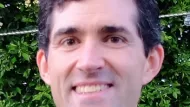With due respect to Frederick Jackson Turner, the American frontier closes on Tuesday. This time, for good.
With due respect to Frederick Jackson Turner, the American frontier closes on Tuesday. This time, for good.
In choosing between two tickets aligned with the Union'sthree newest states-as well as its oldest-America has now stretched as faras it can go to crown its leader. In extending to Barack Obama's nativestate of Hawaii, which was once its own nation, and to Alaska, which would secede if a certain husband had his way, presidential politics has now matched political power to its geographic audacity.
Four decades before America put those incongruous last two stars on the flag, it filled out its continentalpresence with the admission of Arizona,thus setting the stage for John McCain's political career and urban sprawl's most preposterous advance. For something more compact, there's Delaware. Just as the Founding Fathers could not have conceived of Arizona,today we would never conjure up a jurisdiction arbitrary as the First State. Yet it jumped headlong into independence and trusted that sensible men, such as perhaps Joe Biden, could maintain a political system of mutual respect.
By uniting four places that could not be more different, this remarkable coincidence amounts to more than a historical curiosity. It speaksto the kind of nation the UnitedStates has become and the kind of nation that may emerge.
The cultural differences between John McCain, Barack Obama, and their respective lieutenants are perhaps more starkly contrasted than any matter ofgender or race: cosmopolitan vs. libertarian, diverse vs. nationalist, hangloose vs. survivalist. These are not only the stereotypes that color America's folksy corners; they are also the self-perpetuated myths that many Americans, bothinside and outside of those states, hold dear.
Some of these hallmarks are trivial if not apocryphal. The skinning of mooseand bestowing of leis are equally irrelevant to national governance. The realdifference between the candidates and their states lies in a different kind ofgeographic distinction.
America's contemporary homesteads are not as vast as John McCain, Sarah Palin, and America's backyard frontiersman would like them to be. The United States expanded into the Pacific andnearly to Russia because it ran out of land long ago. Limitless resources have beenexhausted. Americais not a place where responsible citizens can ignore needy countrymen, pretend that smoke dissolves without consequence into the wind, or sink a million bores and be greeted each time with the same rush.
Turner presaged this shift over a century ago, but since then we have pretended to keep the Frontier alive by carving it into ever-smaller pieces, fencing it in, laying down sod and insisting that we are free without stopping to figureout what to do with our freedom. For anyone who has stood at the edge of land or tried to wrest water from dust, the answer should be clear.
"Real" Americans may live in Wasilla, but most Americans--whatevertheir race, religion, or profession--live in cities. Intranational differences,folk traditions, regional curiosities, and deeply held values still thrive inthe hinterlands, with rightful pride. But, as any student of cities will quote chapter and verse, America'surban archipelago cradles over 75 percent of America's population and all but asliver of the national economy. Though we have plenty of rural areas and revere them appropriately, we are not a rural nation.
When even our newest territories have gone from wilderness to wellheads of power, it is time to acknowledge that America hasbecome an old country. Places like Chicago, Wilmington, Anchorage, and Honolulu (and, on a good day, central Phoenix)-cities where ideas, capital, andlabor converge-have more bearing on America's future than any of our rusticicons, be they hunters, ploughmen, or dads holding court by the grill.
Since its inception, the federal government favored those characters while failing to contemplate a serious urban policy. Something about electoralpolitics, ignorance of basic economics, and misplaced reverence for the Jeffersonian ideal has forced urban areas to fend for themselves. For whatever reason, Americans identify with their individual states and but not, collectively, as urban citizens. And yet, cities have persevered. Without them,the national economy would depend not on ideas and technology and constantregeneration but instead on whatever rough value the ground would surrender.
With this election America chooses not only between candidates but also between places, between the heroic independence of the Frontier and the cosmopolitan reality of limits. The new president will not be sewing on any more stars or, god willing, seizing anymore faraway lands. How we will govern the land we have will depend on whether America wants myths to inspire it or truths to set it free.

Maui's Vacation Rental Debate Turns Ugly
Verbal attacks, misinformation campaigns and fistfights plague a high-stakes debate to convert thousands of vacation rentals into long-term housing.

Planetizen Federal Action Tracker
A weekly monitor of how Trump’s orders and actions are impacting planners and planning in America.

San Francisco Suspends Traffic Calming Amidst Record Deaths
Citing “a challenging fiscal landscape,” the city will cease the program on the heels of 42 traffic deaths, including 24 pedestrians.

Defunct Pittsburgh Power Plant to Become Residential Tower
A decommissioned steam heat plant will be redeveloped into almost 100 affordable housing units.

Trump Prompts Restructuring of Transportation Research Board in “Unprecedented Overreach”
The TRB has eliminated more than half of its committees including those focused on climate, equity, and cities.

Amtrak Rolls Out New Orleans to Alabama “Mardi Gras” Train
The new service will operate morning and evening departures between Mobile and New Orleans.
Urban Design for Planners 1: Software Tools
This six-course series explores essential urban design concepts using open source software and equips planners with the tools they need to participate fully in the urban design process.
Planning for Universal Design
Learn the tools for implementing Universal Design in planning regulations.
Heyer Gruel & Associates PA
JM Goldson LLC
Custer County Colorado
City of Camden Redevelopment Agency
City of Astoria
Transportation Research & Education Center (TREC) at Portland State University
Jefferson Parish Government
Camden Redevelopment Agency
City of Claremont



























